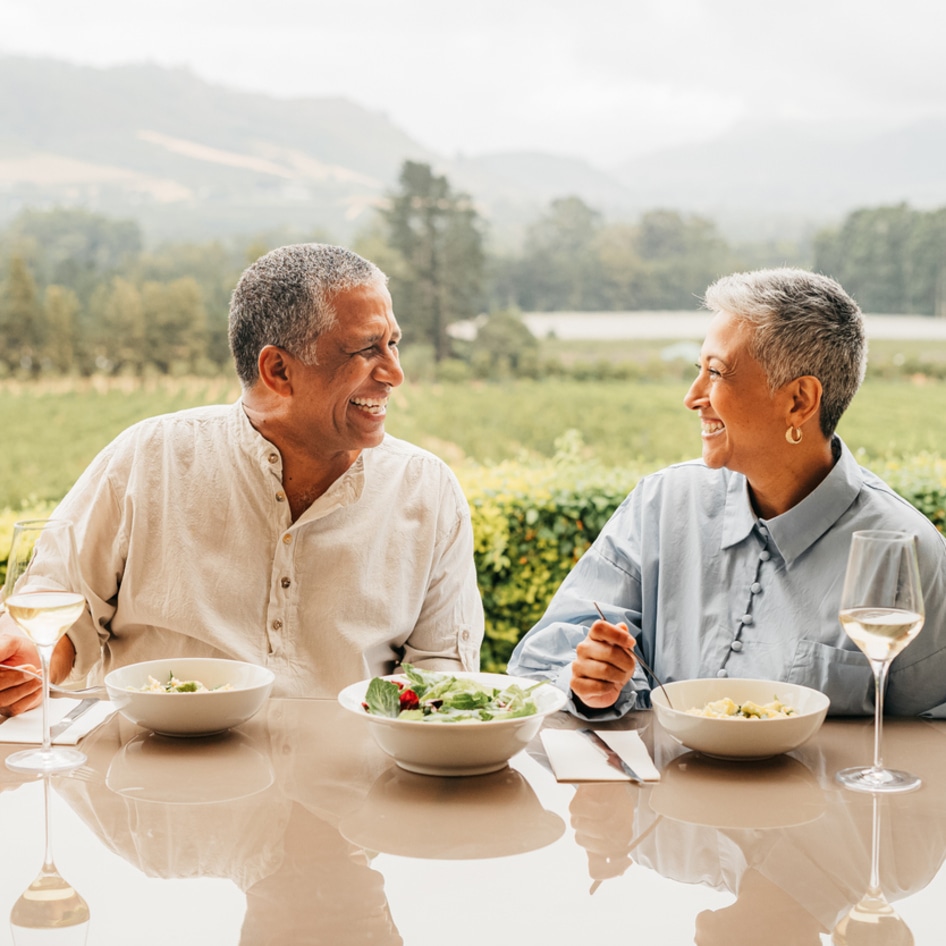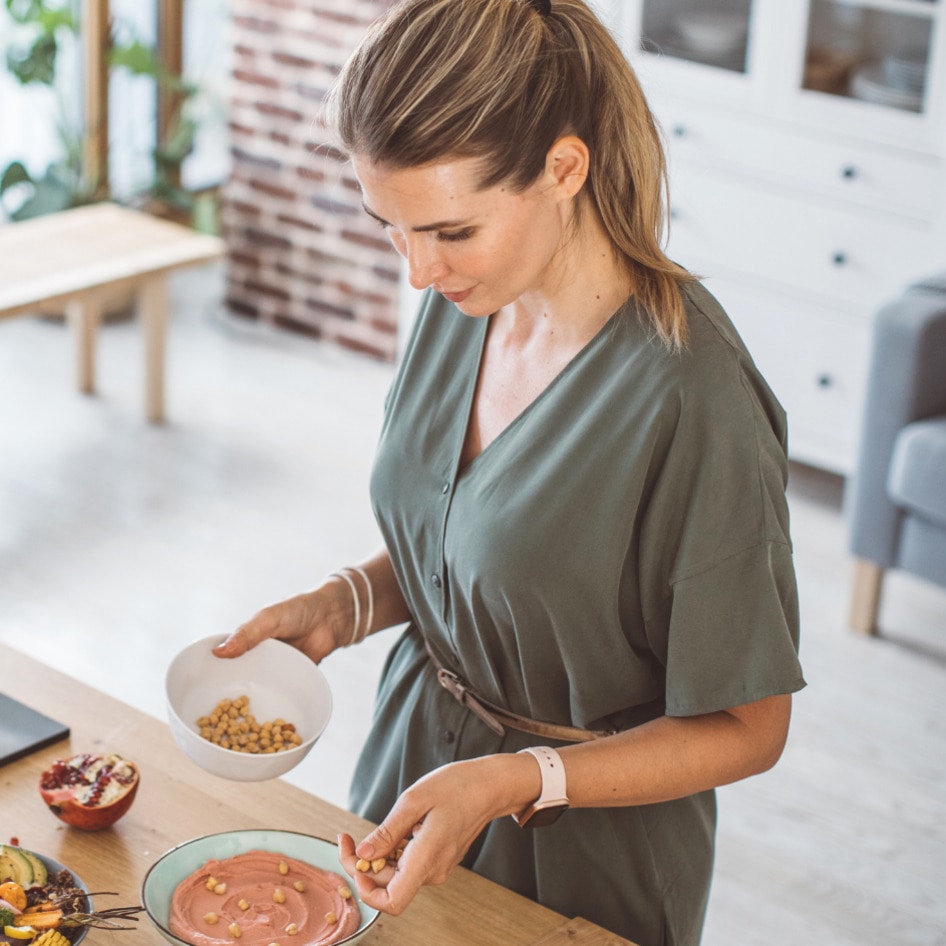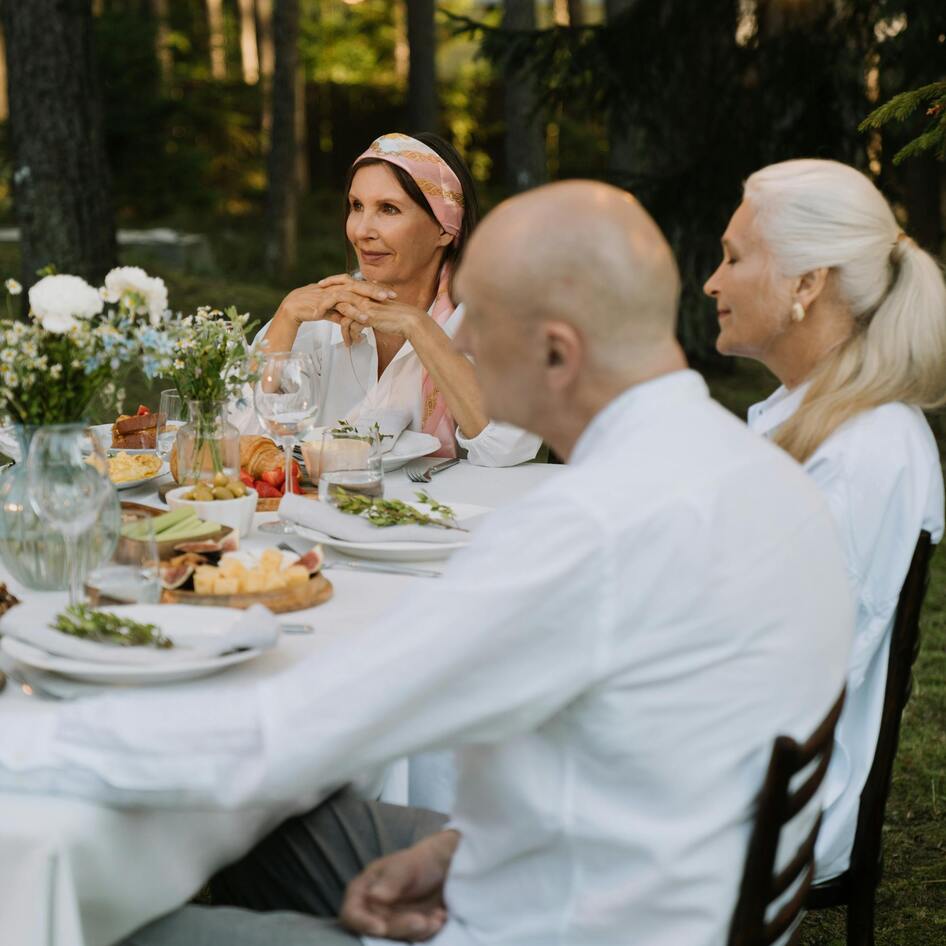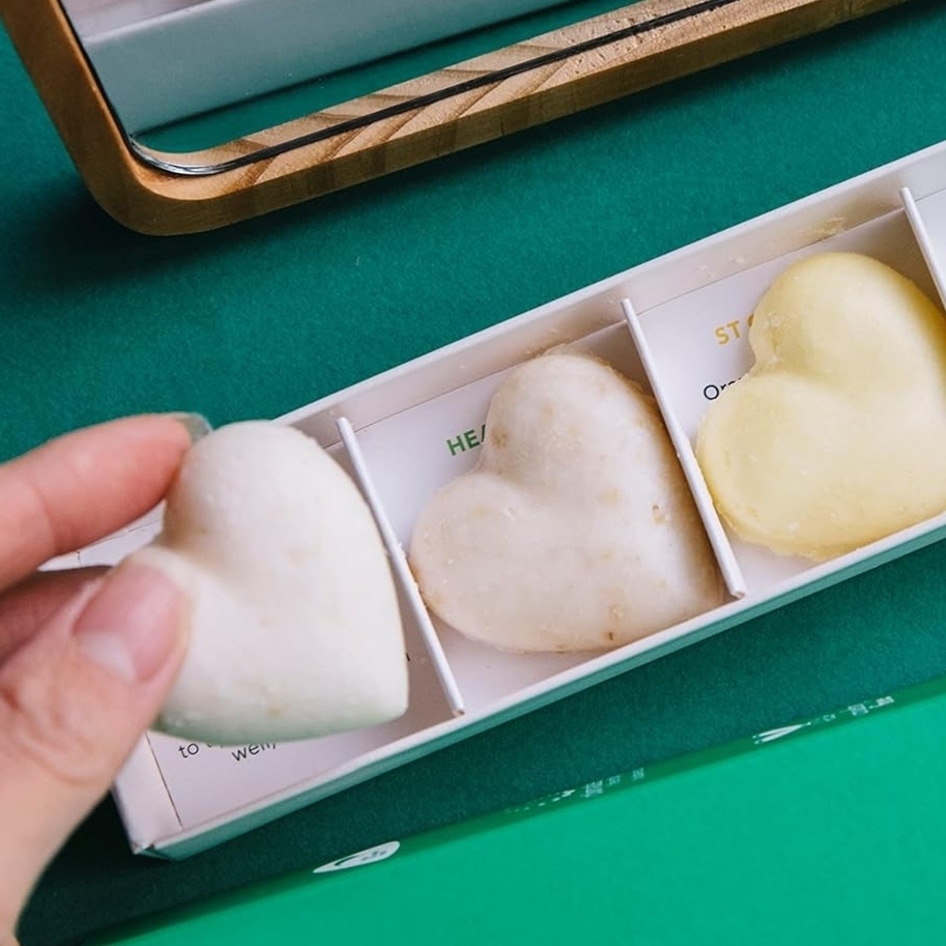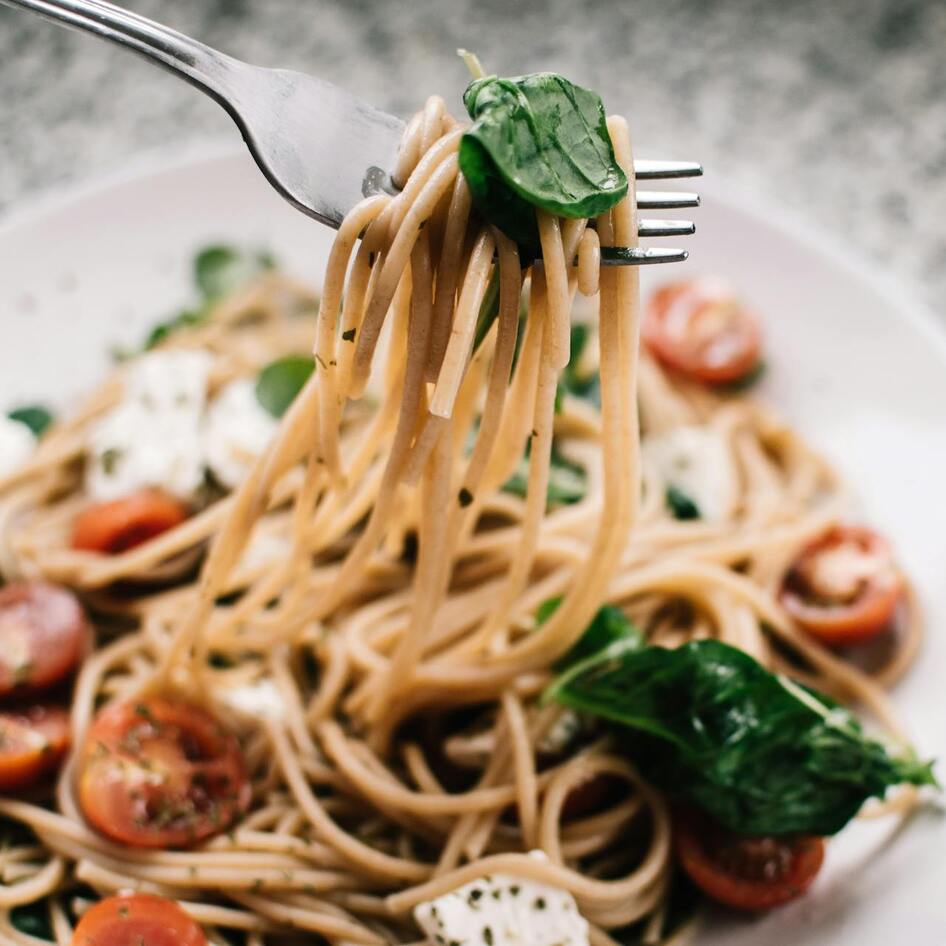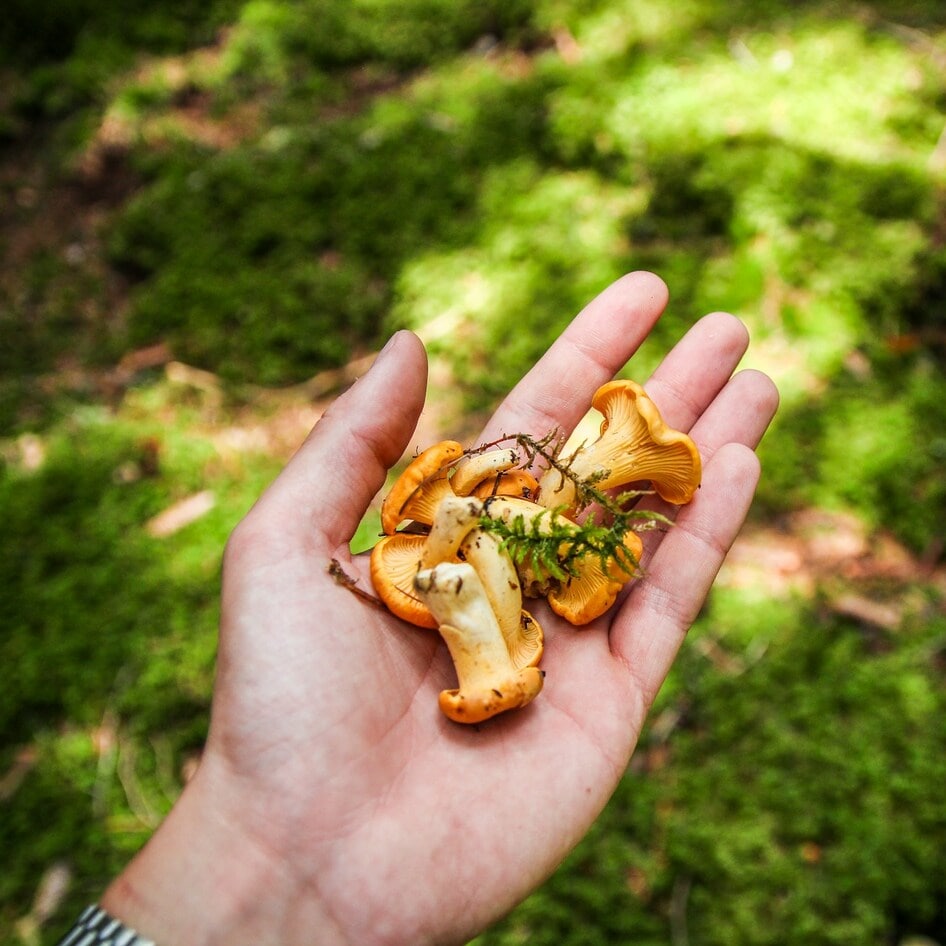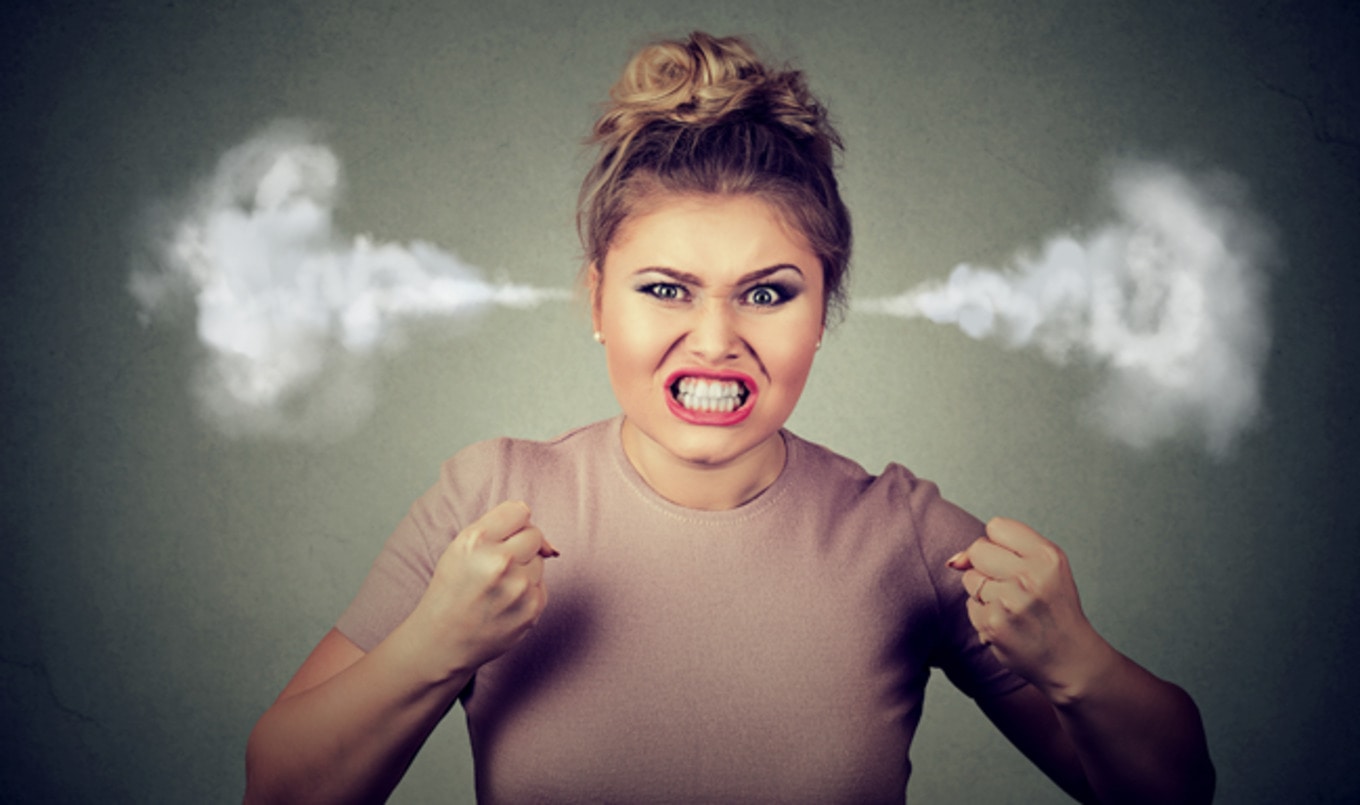
Is Your Meat-Eating Loved One Driving You Up the Wall? Here’s How to Deal.
Melanie Joy’s latest book teaches us everything we need to know about communicating with the omnivores (and vegans) in our lives.
February 1, 2021
In her groundbreaking book Why We Love Dogs, Eat Pigs, and Wear Cows, psychologist, author, and speaker Melanie Joy, Ph.D., Ed.M. presents the now widely-recognized concept of “carnism,” the belief system that conditions people to eat certain animals. And, just as her previous tome offered insight into the minds of non-vegans (and support of a vegan lifestyle), her new book Beyond Beliefs: A Guide to Improving Relationships and Communication for Vegans, Vegetarians, and Meat Eaters offers a path for vegans to connect and communicate with the omnivores in their lives (and also with other vegans). We spoke with Joy to discuss her book and discover how to find peace in vegan/non-vegan relationships.
VegNews: Why did you pick relationships as the topic of your new book?
Melanie Joy: I’ve been traveling extensively and have been hearing the same story over and over again: people become vegan, and it’s this incredibly empowering choice that they make only to find that it often causes connection and communication to break down. I’ve worked in the field of relationships, and I’m aware of the statistics which show that people in supportive, fulfilling relationships fare better in every area of life, so you can imagine the impact that the absence or disruption of such relationships would have on people. I also realized that this issue is taking a toll on the vegan movement as a whole. It’s siphoning a tremendous amount of energy from the people who are the engine of the movement.
VN: Does the book focus on romantic relationships or can the principles be applied to all relationships?
MJ: It’s for all relationships, so the same principles that are necessary for creating healthy relationships apply—whether it’s a brief relationship interacting with a stranger, your relationship with your parents or friends, your relationship with your romantic partner, or your relationship with yourself.
VN: What can a vegan dating a carnivore do when conflict regarding diet arises?
MJ: The most important thing is to remember is that underneath different beliefs is a relationship between people, and that’s where the focus of attention needs to be. A lot of times people get caught up in a debate about whose ideology or whose belief system is right. There’s a place for talking about ideologies, but if the process—the way that people are interacting and communicating—isn’t organized around integrity and isn’t feeling safe, then talking about the content of different beliefs is not going to go well. I talk a lot about effective communication in the book, and I explain ways to shape conversations so people are not just debating ideas but communicating with an openness to each other’s experience.
VN: What does it mean to request a “vegan ally” in a relationship?
MJ: Allyship is essential from both ends in a relationship. We all need to know that the people we are in a relationship with are on our side. Even if we don’t have the same beliefs, we need to know that we understand each other and we’re committed to each other’s security and well-being. Allyship is even more important for the person who’s a member of a non-dominant social group such as vegans. Vegans need the people in their lives to be their allies. A vegan ally is a person who is not fully vegan themselves, but they are supportive of vegan values, vegan ideology, and of the vegans in their lives and in the world.
VN: What is acceptance, and how can it help in a vegan/non-vegan relationship?
MJ: Relationship therapists suggest that acceptance is a prerequisite for a secure, connected relationship. It’s also a prerequisite for change, so even if you get to the point where you’re thinking, “I’m with a non-vegan, and I don’t know if this is going to work for me,” the first step to figuring out if that’s going to work is acceptance. You need to accept the other person for who they are—not to judge them as being “less-than” for being who they are. Sometimes, when a person feels accepted, they start to change behaviors that they weren’t willing to change before. They feel more open to changing because they no longer feel judged. When you let go of your judgment, it doesn’t mean that you choose to live with someone’s meat-eating—it doesn’t mean that you don’t want to change the world. Obviously, we do. It’s that acceptance brings some spaciousness into your life so you can be clear about whether you need that person to be vegan or not in order for you to feel secure and connected with them.
Maya Gottfried is the author of Vegan Love: Dating and Partnering for the Cruelty-Free Gal and Our Farm: By the Animals of Farm Sanctuary.
JUMP TO ... Latest News | Recipes | Guides | Health | Subscribe

